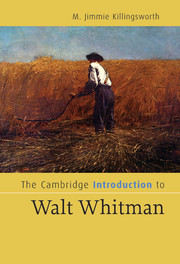In one of his last reflections on Leaves of Grass, the essay “A Backward Glance o'er Travel'd Roads,” Whitman describes his original ambition: “to articulate and faithfully express in literary or poetic form, and uncompromisingly, my own physical, emotional, moral, intellectual, and aesthetic Personality in the midst of, and tallying, the momentous spirit and facts of … current America” (658). Whitman understood himself to embody in his poems and in his person the turmoil of a new nation struggling to define itself. This historical and poetic identity persisted, though not without its own turmoil and revisions, through the processes that came to define nineteenth-century US history – urbanization, industrialization, westward expansion, and war. It endured and was shaped by conflicts over race, class, gender, and culture.
In light of Whitman's identification with America, the history out of which Leaves of Grass grew is best understood not as mere “background” for the poems, but as a context in which the text is deeply rooted. Better yet, history and culture were “influences” in the literal sense of something that “flows in” to the work, or (to use two of Whitman's favorite terms) “rivulets” that “infused” the poetry. Whitman was not only a witness to the movements and events of his day but also a key participant: a country schoolteacher, a skilled worker, a city journalist, a companion to wounded soldiers in the Washington war hospitals, and a poet who formed a bardic conception of his role, giving voice to the currents and tides of historical change.
